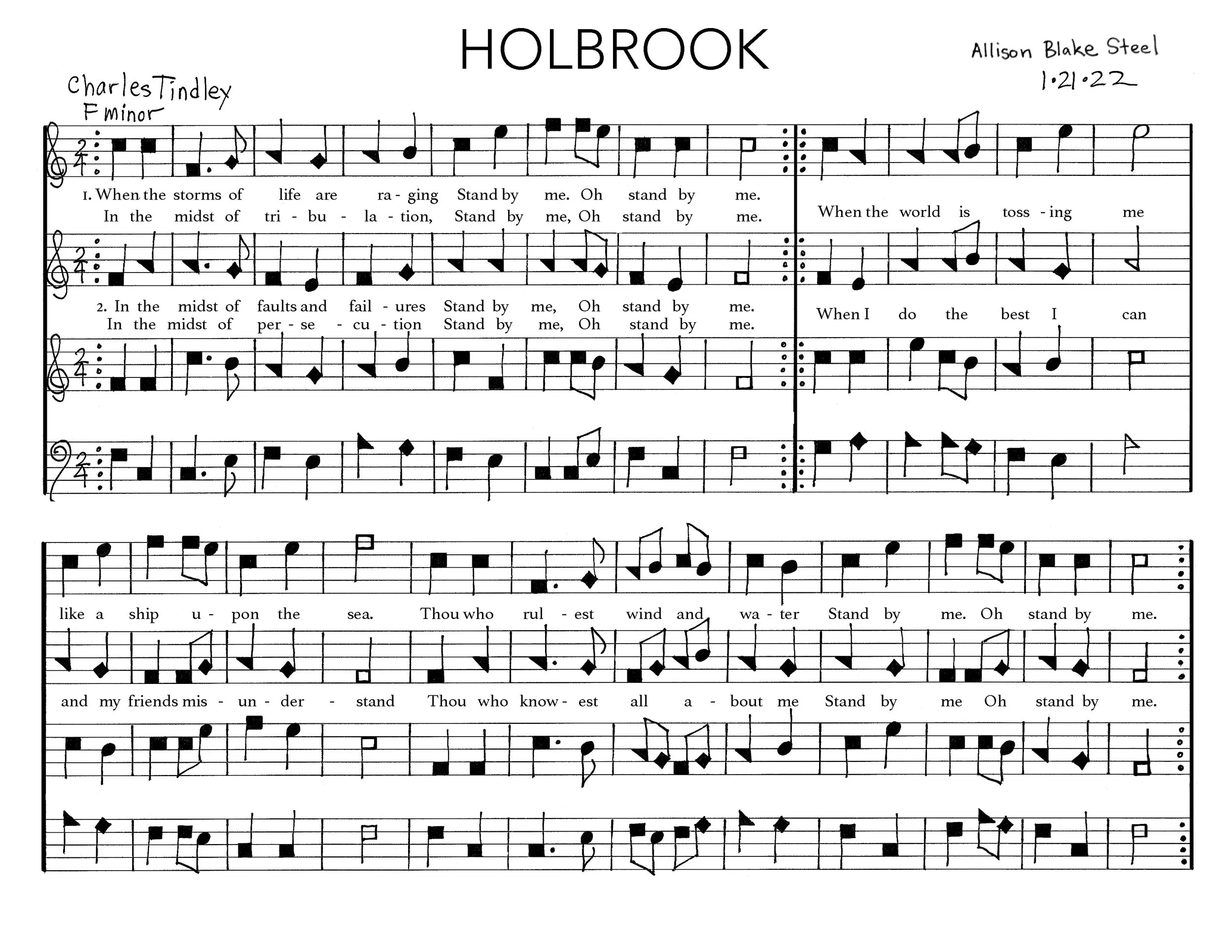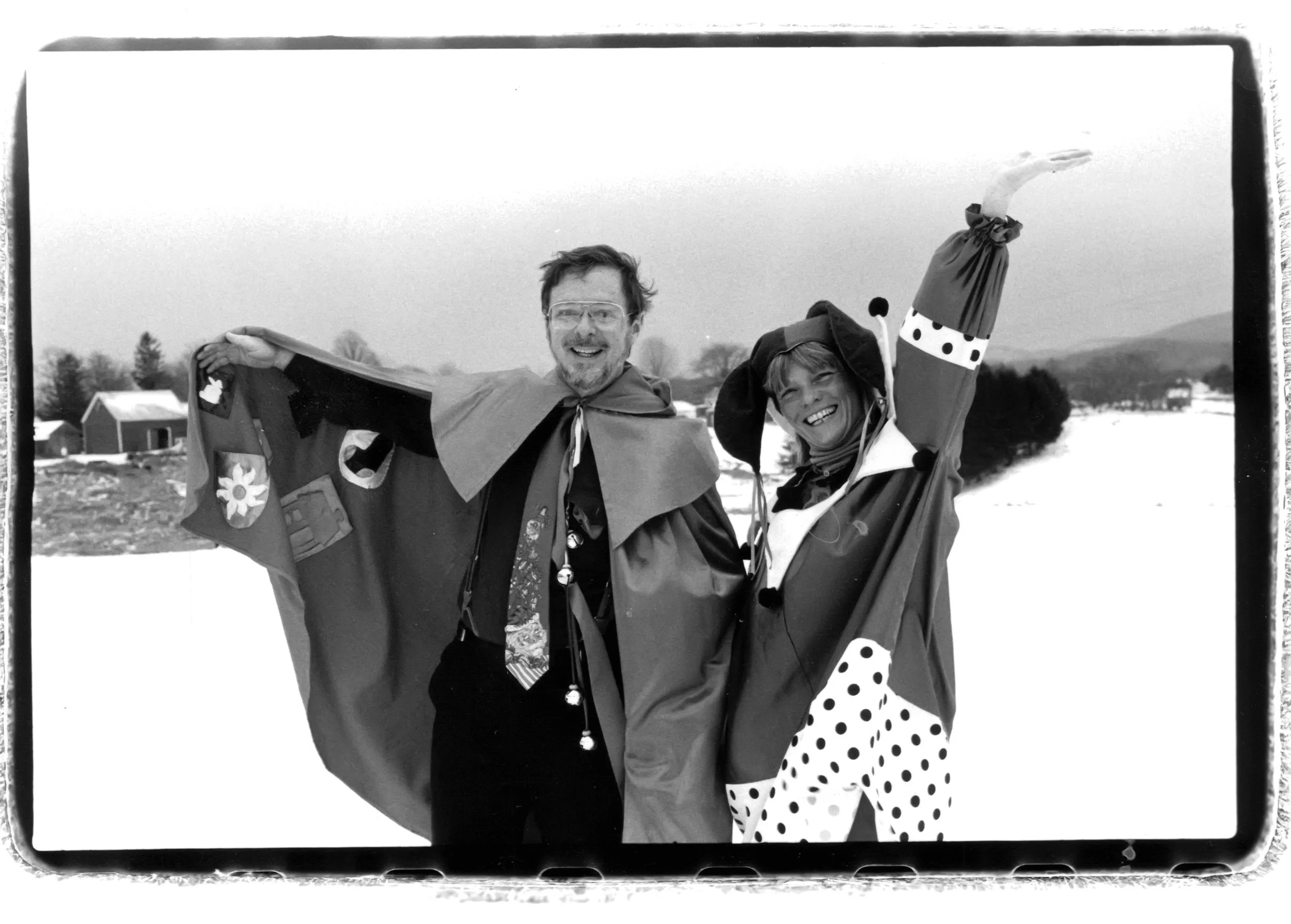Sacred Harp Tune: HOLBROOK
Here’s a little bit about my process: In the last 5 years or so I’ve changed a few things about how I’m writing music and I think it’s really helped improve my songs. I’ve been writing shape-note songs for probably 20 years now but I’ve become newly obsessed with the tune. I had been writing hymns and anthems and some children’s songs and my husband JE made the observation that my children’s songs were very catchy. He (gently) suggested that they were much catchier than my “serious” songs. He was 100% correct and this larger, multi-year conversation has become shorthanded as: write catchier tunes! Easier said than done of course, but this has become one of the central pillars of my song writing.
There’s almost no point in going on if the tune isn’t great. It should be memorable. It should flow naturally from the words. It should be so catchy that a child could learn it without intending to. When I think of our great tunes: Wondrous Love, Wayfaring Stranger, Plenary, Mear on and on and on they are like precious gems, treasured in a pocket close to our hearts. If we could have one more tune of that quality? What immesurable value to us for centuries! I don’t know if I will ever write a great tune. But I am working hard to write the best tunes that I can.
The text for this song was written by Charles Albert Tindley, 1851-1933. His life was astonishing. He was born in Berlin, Maryland before the civil war to Charles and Hester Tindley. He was born free because his mother, Hester, was a free woman, his father, Charles, was enslaved. His mother died when he was very young and he went to live with her sister in order to protect him from enslavement. He was mostly self-taught; he taught himself to read, “he mastered reading so well that later he enlisted the help of a Philadelphia synagogue on North Broad St. to learn Hebrew. He later learned Greek by taking a correspondence course through the Boston Theological School.” (Ralph Jones, Charles Albert Tindley: Prince of Preachers)
He became a sexton (unpaid building caretaker) “for the East Bainbridge Street Church. Beginning in 1885, he was appointed by the local bishop to serve two or three-year terms at a series of churches, until coming full circle to become pastor at East Bainbridge in 1902. Under his leadership, the church grew rapidly. They relocated in 1904 to the East Calvary Methodist Episcopal Church, then again in 1924 to the new Tindley Temple, where the membership roll blossomed to about ten thousand.
“Tindley was known for being a captivating preacher, and for also taking an active role in the betterment of the people in his community. His songs were an outgrowth of his preaching ministry, often introduced during his sermons. Tindley was able to draw people of multiple races to his church ministry; likewise, his songs have been adopted and proliferated by white and black churches alike.” (Source- hymnary.org)
Tindley is buried in Eden Cemetery, Collingdale, PA
I know that there is a very famous song composed by Tindley and sung by Elvis and Bob Dylan and a million other people. I listened to it first today because if I had known it before writing this tune I wouldn’t have been able to separate the tune from the text. It’s a great tune alright. (Also it would’ve felt even more hubristic than these sorts of endeavors sometimes do.) Luckily I was just searching on hymnary.org for texts to inspire new songs and spent some time and effort on texts by Tindley. I approached the texts rather innocently as texts and following to see where they led, I hope I did right by it.
The song in named Holbrook in honor of John and Greta Holbrook of Easthampton, Massachusetts. I can’t begin to say how important John and Greta are to so many in our community. Everyone has story after story of their kindness and generosity. They have given us food to eat, officiated our marriages, nursed us to health, employed the stranger, let us live in their home, and rescued us and sang with us for years. Greta has been in hospice for almost a year now and has made me consider what a good life and a good death might be and I am grateful for every moment I have with her.
I have named so many songs Holbrook over the years, some of them were pretty good but none were my best. I re-named this song Holbrook once I was told it would be included in the Sacred Harp. Tim suggested I call all my songs “Thank God for the Holbrooks” I think I might.





